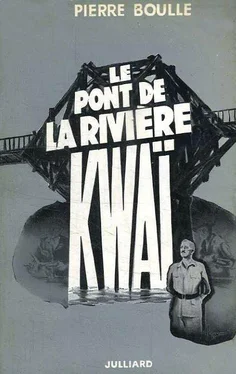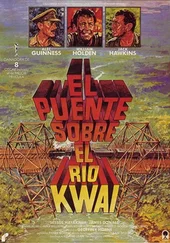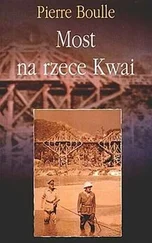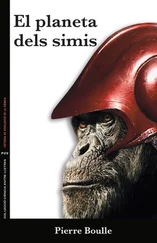“Begin from the beginning,” Shears insisted in spite of his impatience. “How did it go?”
Joyce had set off one night accompanied by two natives who were accustomed to these secret nocturnal expeditions since it was their practice to smuggle wads of opium and cases of cigarettes over the border between Burma and Siam. They claimed that the paths they used were quite safe; but it was so important for no one to know that a European was in the neighborhood that Joyce had insisted on disguising himself as a Siamese peasant and on dyeing his skin with a brown pigment made up in Calcutta for just such an occasion.
He soon saw that his guides had been telling the truth. The real enemies in this jungle were the mosquitoes and particularly the leeches, which fastened onto his bare legs and climbed up his body; he could feel them sticking to him each time he stroked his skin. He had done his best to overcome his disgust and to disregard them. He had almost succeeded. In any case he could not get rid of them during the night. He refrained from lighting a cigarette in order to burn them off, and he needed all his wits about him to keep up with the Siamese.
“Tough going?”
“Fairly tough, sir. As I said, I had to keep one hand on the shoulder of the chap in front. And these fellows’ so-called paths have to be seen to be believed!”
For three nights they had made him clamber up hill and down dale. They followed rocky river beds blocked here and there with stinking clumps of rotting vegetation, and each time they brushed against these they collected a rich crop of fresh leeches. His guides showed a preference for these paths, in which they were sure they could not get lost. They kept going till dawn. When the first rays of the sun appeared they dived into the undergrowth and quickly ate the boiled rice and cooked meat they had brought for the journey. The two Siamese then squatted under a tree until nightfall, puffing away at a bubbling water pipe which they always carried with them. That was their method of relaxing after the rigors of the night. From time to time they dropped off between two puffs, without even shifting their position.
Joyce, however, insisted on sleeping properly in order to harvest his strength, for he was anxious to make the best of every circumstance on which the success of his mission depended. He began by getting rid of the leeches which covered his body. Some of them, completely glutted, had fallen off by themselves during the night, leaving a little clot of congealed blood. The others, which had not yet had their fill, stuck firmly to this prey of theirs which the fortunes of war had brought into the jungles of Siam. Under the glow of a burning cigarette their swollen bodies contracted, twisted, then finally let go and fell on the ground, where he squashed them between two stones. Then he lay down on a ground sheet and went to sleep at once; but the ants did not leave him in peace for long.
Attracted by the drops of congealed blood which bespattered his skin, they took this opportunity to advance in long black and red cohorts. He learned to distinguish between the two as soon as he felt them, without even opening his eyes. Against the red ones there was nothing he could do. Their sting was like white-hot pincers on his sores. A single one was unbearable; and they advanced in battalions. He was forced to yield ground and find some other spot where he could lie down until they located him again and launched a fresh attack. The black ones, especially the large black ones, were not so bad. They did not sting and their tickling did not wake him up until his sores were alive with them.
Yet he always managed to get enough sleep, quite enough to have enabled him, when night fell again, to scale mountains ten times as high and a hundred times as steep as the hills of Siam. He felt drunk with delight at being on his own during this reconnaissance, which was the first stage in the development of the big attack. It was on his own energy, his own judgment, his own decisions during this expedition that the success of the operation depended. Of this he was certain, and the certainty enabled him to preserve intact his inexhaustible reserves of strength. He kept his eyes firmly fixed on the imaginary bridge, that shadowy form which was a permanent part of his dream world. The mere thought of it endowed his every gesture with an unlimited magic power which increased his glorious chances of success.
The actual bridge, the bridge on the River Kwai, had suddenly sprung into view when, after a final climb, the stiffest they had so far encountered, they reached the top of a hill commanding the valley. They had kept moving later than on the previous nights, and the sun had already risen by the time they reached the observation post which the Siamese had mentioned in their reports. He looked down at the bridge as though from an airplane. Several hundred feet below him a light-colored band stretched across the water between two strips of jungle; a small gap over on the right enabled him to make out the geometric network of piles and platform. For some time he noticed no other feature of the panorama unrolled at his feet, neither the camp directly opposite him on the far bank, nor even the groups of prisoners at work on the construction itself. It was an ideal observation post, and he felt perfectly safe. The Japanese patrols were hardly likely to risk their necks in the undergrowth between him and the river.
“I saw it as plainly as I can see you now, sir. The Siamese had not exaggerated. It’s a big job. It’s properly built. It’s nothing like any other Japanese bridge. Here are a few sketches, for what they’re worth.”
He had recognized it at once. The shock of confronting this materialized ghost of his was not due to surprise but, on the contrary, to its familiar aspect. The bridge was exactly as he had imagined it. He studied it, anxiously at first, then with overpowering relief. The general background also conformed to the patiently worked-out pattern of his imagination and hopes. It differed only in detail. The water did not sparkle as he had seen it in his mind’s eye. It was muddy. For a moment he felt almost cheated, but cheered up at the thought that this defect would better serve their purpose.
For two days he lay concealed, crouching in the undergrowth, eagerly observing the bridge through his binoculars and studying the ground over which the attack was to be launched. He had painted a mental picture of the general layout and individual features, taking notes and making a rough sketch of the paths, the camp, the Japanese huts, the bends in the river, and even of the large rocks protruding here and there out of the water.
“The current’s not very strong, sir. The river’s an easy proposition for a small boat or a good swimmer. The water’s muddy. There’s a road over the bridge, and four rows of piles. I saw the prisoners driving them in with a ram—the British prisoners. They’ve almost reached the left bank, sir, the bank with the observation post on it. Other teams are following up behind. The bridge’ll be ready in a month, I should think. The superstructure…”
He now had such a mass of information to report that he could not keep it in its proper order. Shears let him run on without interrupting him. There would be time enough, when he had finished speaking, to question him on specific points.
“The superstructure’s a geometric network of crossbeams which looks as if it’s been carefully designed. The supports are all squared up and properly put together. I could see the joints in detail through my glasses. A really well-designed job, sir, and a solid one too, let’s face it. It’ll mean more than just slashing up a few bits of wood. While I was there, sir, I thought of the safest way of dealing with it, and I think it’s the simplest as well. I think we’ll have to go for the piles in the water, or rather, under the water. It’s thick with sediment. The charges won’t be noticed. That way the whole works will capsize all together.”
Читать дальше











